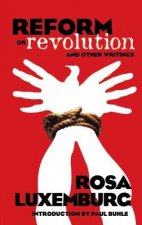
Kód: 04113634
Mussolini's Intellectuals
Autor James Gregor
Fascism has traditionally been characterized as irrational and anti-intellectual, finding expression exclusively as a cluster of myths, emotions, instincts, and hatreds. This intellectual history of Italian Fascism - the product o ... celý popis
- Jazyk:
 Angličtina
Angličtina - Vazba: Brožovaná
- Počet stran: 280
Nakladatelství: Princeton University Press, 2006
- Více informací o knize

1178 Kč

Skladem u dodavatele v malém množství
Odesíláme za 12-17 dnů
Potřebujete více kusů?Máte-li zájem o více kusů, prověřte, prosím, nejprve dostupnost titulu na naši zákaznické podpoře.
Přidat mezi přání
Mohlo by se vám také líbit
-

The Art of War
75 Kč -

Reflections on European Mythology and Polytheism
224 Kč -

Storm of Steel
276 Kč -

St. Thomas Aquinas
233 Kč -

Anti-Judaism
524 Kč -

History of Central Banking and the Enslavement of Mankind
852 Kč -

Fasces
934 Kč -

A Shorter Summa
457 Kč -

Mussolini and the Eclipse of Italian Fascism
896 Kč -

Storm of Steel
347 Kč -

Anti-Judaism
373 Kč -

History of Central Banking and the Enslavement of Mankind
662 Kč -

Beyond Civilisation
396 Kč -

Universal Aspects of Fascism & Fascism
650 Kč -

What Caused the Civil War?
512 Kč -

Politics and Power in a Slave Society: Alabama, 1800--1860
1100 Kč -

Conservative Intellectual Movement in America since 1945
691 Kč -

Fateful Lightning
524 Kč -

Mussolini: A New Life
647 Kč -

Reconstruction: A Concise History
502 Kč -

Beautiful Poetry of Donald Trump
368 Kč -

Handweaver's Pattern Book
838 Kč -

Moongazing
249 Kč -

American Inheritance: Liberty and Slavery in the Birth of a Nation, 1765-1795
389 Kč -

Official Downton Abbey Night and Day Book Collection (Cocktails & Tea)
1111 Kč -

Observing the User Experience
1373 Kč -

South Was Right!
706 Kč -

Paisley Rabbit and the Treehouse Contest
434 Kč -

Black Cake
329 Kč -

Batman: Reptilian
581 Kč -

The Lost Metal
669 Kč -

Fuzzy Logic
5391 Kč -

Madison's Militia
794 Kč -

Southern Strategy Revisited
1144 Kč -

Wonderful Wizard Of Oz
926 Kč -

Hunter x Hunter, Vol. 1
223 Kč -

Medieval Church Architecture
342 Kč -

Berserk Volume 25
342 Kč -

Stranger in the Woods
249 Kč -

We Need To Talk About Kevin
213 Kč -

Adapt
303 Kč -

How to be Both
276 Kč -

Pattern Theory: Introduction and Perspectives on the Tracks of Christopher Alexander
395 Kč -

The Snows of Kilimanjaro, and Other Stories
419 Kč -

Gilded Reverie Lenormand
358 Kč -

Sweetness of Life
814 Kč -

REASONS TO VOTE FOR DEMOCRATS
330 Kč -

Rise and Fall of Violent Crime in America
448 Kč -

How to Draw Cute Stuff: Draw Anything and Everything in the Cutest Style Ever! Volume 1
282 Kč -

From Rebellion to Revolution
615 Kč -

History of Fascism, 1914 1945
869 Kč -

The Conservative Mind
517 Kč -

Raus aus dem Zwangs-TV !
179 Kč -

Sto dni bez slonca
292 Kč -

1000 Record Covers
359 Kč -

Stadtplan Breslau/Wroclaw heute und 1932
179 Kč
Dárkový poukaz: Radost zaručena
- Darujte poukaz v libovolné hodnotě a my se postaráme o zbytek.
- Poukaz se vztahuje na celou naši nabídku.
- Elektronický poukaz vytisknete z e-mailu a můžete ihned darovat.
- Platnost poukazu je 12 měsíců od data vystavení.
Více informací o knize Mussolini's Intellectuals
Nákupem získáte 118 bodů
 Anotace knihy
Anotace knihy
Fascism has traditionally been characterized as irrational and anti-intellectual, finding expression exclusively as a cluster of myths, emotions, instincts, and hatreds. This intellectual history of Italian Fascism - the product of four decades of work by one of the leading experts on the subject in the English-speaking world - provides an alternative account. A James Gregor argues that Italian Fascism may have been a flawed system of belief, but it was neither more nor less irrational than other revolutionary ideologies of the twentieth century. Gregor makes this case by presenting for the first time a chronological account of the major intellectual figures of Italian Fascism, tracing how the movement's ideas evolved in response to social and political developments inside and outside of Italy.Gregor follows Fascist thought from its beginnings in socialist ideology about the time of the First World War - when Mussolini himself was a leader of revolutionary socialism - through its evolution into a separate body of thought and to its destruction in the Second World War. Along the way, Gregor offers extended accounts of some of Italian Fascism's major thinkers, including Sergio Panunzio and Ugo Spirito, Alfredo Rocco (Mussolini's Minister of Justice), and Julius Evola, a bizarre and sinister figure who has inspired much contemporary 'neofascism'. Gregor's account reveals the flaws and tensions that dogged Fascist thought from the beginning, but shows that if we want to come to grips with one of the most important political movements of the twentieth century, we nevertheless need to understand that Fascism had serious intellectual as well as visceral roots.
 Parametry knihy
Parametry knihy
Zařazení knihy Knihy v angličtině Society & social sciences Politics & government Political ideologies
1178 Kč
- Plný název: Mussolini's Intellectuals
- Autor: James Gregor
- Jazyk:
 Angličtina
Angličtina - Vazba: Brožovaná
- Počet stran: 280
- EAN: 9780691127903
- ISBN: 0691127905
- ID: 04113634
- Nakladatelství: Princeton University Press
- Hmotnost: 456 g
- Rozměry: 230 × 155 × 19 mm
- Datum vydání: 13. August 2006
Oblíbené z jiného soudku
-

The Communist Manifesto
90 Kč -

Mein Kampf
701 Kč -

Imperialism the Highest Stage of Capitalism
183 Kč -

ALL NEW Don't Think of an Elephant!
308 Kč -

Liberalism: A Very Short Introduction
249 Kč -

Liberalism
405 Kč -

Communism: A Very Short Introduction
249 Kč -

Fascism: A Very Short Introduction
271 Kč -

Capital
131 Kč -

The Unabomber Manifesto
289 Kč -

The Communist Manifesto
53 Kč -

Imagined Communities
366 Kč -

Reform or Revolution and Other Writings
321 Kč -

Liberalism
495 Kč -

Road to Serfdom
413 Kč -

State and Revolution
173 Kč -

Blackshirts and Reds
345 Kč -

Companion To Marx's Capital
574 Kč -

Irreversible Damage
548 Kč -

Economic and Philosophic Manuscripts of 1844
222 Kč -

Anarchism and Other Essays
325 Kč -

Introduction to the Three Volumes of Karl Marx's Capital
394 Kč -

Early Writings
420 Kč -

Poverty of Philosophy
242 Kč -

Tomas G Masaryk a Scholar and a Statesman
1149 Kč -

Origins of Totalitarianism
815 Kč -

Limits of Liberty -- Between Anarchy & Leviathan
643 Kč -

Fanged Noumena - Collected Writings 1987-2007
701 Kč -

Rules for Radicals
312 Kč -

The Rape of the Mind
372 Kč -

Notes on Nationalism
90 Kč -

Psychopolitics
306 Kč -

Anatomy of Fascism
338 Kč -

Rights of Man, Common Sense, and Other Political Writings
196 Kč -

Communist Manifesto
143 Kč -

Communist Manifesto and Das Kapital
223 Kč -

Why Liberalism Failed
433 Kč -

Coming Insurrection
304 Kč -

Brainwashed
357 Kč -

The Virtue of Nationalism
611 Kč -

Real North Korea
357 Kč -

Capital
286 Kč -

Brief History of Neoliberalism
604 Kč -

Capital
456 Kč -

Fools, Frauds and Firebrands
372 Kč -

Post-scarcity Anarchism
382 Kč -

Communist Manifesto Illustrated
991 Kč -
![What Is to Be Done? [Burning Questions of Our Movement] What Is to Be Done? [Burning Questions of Our Movement]](https://media.libris.to/jacket/08800888t.jpg)
What Is to Be Done? [Burning Questions of Our Movement]
194 Kč -

German Ideology
459 Kč
Osobní odběr Praha, Brno a 12903 dalších
Copyright ©2008-24 nejlevnejsi-knihy.cz Všechna práva vyhrazenaSoukromíCookies


 Vrácení do měsíce
Vrácení do měsíce 571 999 099 (8-15.30h)
571 999 099 (8-15.30h)